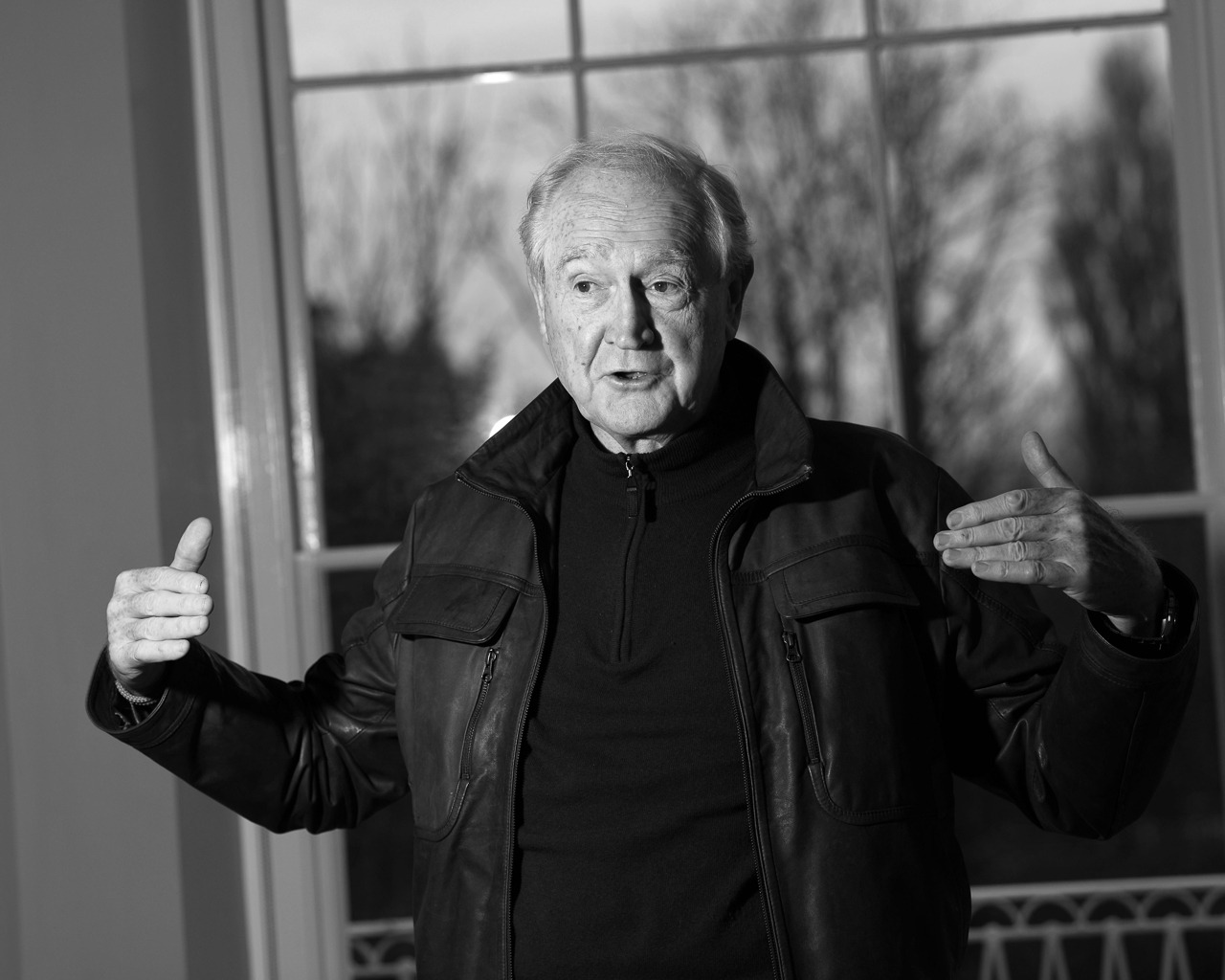“Hugely ahead of the curve” was how Minister for the Environment Eamon Ryan described Eddie O’Connor to me as we stood outside Mount Jerome Victorian Chapel in Co Dublin following the funeral of the late energy entrepreneur. Ryan said the label was pertinent through the decades he had known O’Connor, from the time he applied to the then CEO of Bord na Móna in the late 1980s for a job (Ryan didn’t get the job) to their last encounter at the launch of O’Connor’s book Supergrid in Berlin six weeks ago.
“I’ve been listening to Eddie speak about the supergrid for nearly all that time,” Ryan said. From start to finish, their friendship developed around O’Connor’s “big ideas”, the minister added.
If O’Connor’s dream of a supergrid balancing the flow of renewable energy generation and electricity consumption across Europe in real time proves to be as prescient as his faith in wind power, we have yet to see most of his legacy emerge.
His untimely death at the age of 76 last weekend was the starkest event overshadowing Ireland’s business community in recent days, as illustrated by Fintan’s tribute on Tuesday. There is no shortage of people willing to continue on the path his career has opened. This was evident in the crowd of several hundred mourners who gathered inside and outside the chapel for the warm, non-religious funeral service conducted by his family and Entheos minister Karen Dempsey on Thursday.
There were immediate colleagues who worked with O’Connor until recently, such as Mainstream Renewable Power executives led by CEO Mary Quaney or Supernode director and former European Parliament President Pat Cox; politicians including Ryan and Fianna Fáil Senator and climate action spokesperson Timmy Dooley; former Concern CEO and veteran green economy expert Tom Arnold; and countless industry partners such as Wind Energy Ireland’s chief executive Noel Cunniffe.
“Eddie always was and to my mind, always will be, larger than life,” Quaney told me. “The impact that he has had as a force to initiate and drive the global renewable energy sector with a formidable passion, ambition and clarity of direction is immense. No barrier was too great or could not be overcome in the massive strides he led in the energy transition.”
She highlighted her honour and privilege to have worked with O’Connor for many years and the drive to continue to deliver on what he started among colleagues at Mainstream Renewable Power and its sister company Supernode, which develops technologies applicable to the supergrid idea.
Against the grain
I’m usually unimpressed by stories of great individual leaders and believe the greatest human achievements are collective, but I have to make an exception for O’Connor. His decision to build Ireland’s first onshore wind turbine at Bellacorick in Co Mayo in the early 1990s went against the grain as the head of a fossil fuel company, Bord na Móna. From zero, it established an industry that is now supplying one third of Ireland’s electricity.
As founder of Airtricity, O’Connor was also behind the country’s first (and only) offshore windfarm along the coast of Arklow, Co Wicklow. Twenty years on, regulators, developers and investors are finally taking concrete steps to turn this technology into Ireland’s best chance of replacing tax-driven technology multinationals as the future bedrock of its prosperity, as Stephen explained on Thursday.
When I met O’Connor two years ago, he was reeling off the steps Supernode was taking towards the commercialisation of new materials enabling more efficient long-distance electricity transport in the coming years, which he said would be a key component of a European supergrid. As he battled illness in recent weeks, Ireland and France began construction of the Celtic Interconnector through which they expect to start trading power in 2026.
Why such a following for O’Connor? “As well as a great leader, he was a people person, great company, engaging and immensely generous with his time and in sharing his experiences and knowledge,” Quaney told me. “He instilled us, and so many across the renewable energy industry, with a passion, drive and energy that will never be extinguished.”
The eulogy by O’Connor’s daughter Lesley conveyed this enthusiasm across the public and private spheres of his life. She described him as a father and grandfather who was “always game for an adventure” and instilled a strong sense of values in his children – “he talked about them incessantly” – encouraging them to stand up for what they believed was “the red line between right and wrong”.
He was competitive, too, letting his family know when he had scored his 1,000th goal at weekend football games: “Yes, he counted them all”, Lesley said. “It was always go big or go home with Dad.”
In relation to his business achievements, she added: “Eddie has already changed the world.” Despite his passing, every indication is that he is far from being finished with that.
*****
Elsewhere this week, Ronan undid the threads that link inflation to mortgage rates and their impact on people’s decisions to buy and sell houses, forecasting another tight year of supply but also pressure on demand in 2024.
Donegal native Vinny Breslin and his co-founders sold their holiday property management company Uplisting in a multi-million-dollar deal, and he told Tom the full story.
Francesca took stock of the mass litigation over mica contamination in defective building blocks, where parties have been fighting every inch of ground – down to the way rock samples are taken from quarries.
Sean interviewed management consultant Gary O’Sullivan, who has first-hand experience of the gap between Irish SMEs and multinationals after growing his Pathfinder firm into a unit of the European giant SIA Partners.
Niall, meanwhile, obtained new information on the pressure the Environmental Protection Agency has recently applied on local authorities to join its enforcement effort against unauthorised peat extraction. It is a story we will return to.


